“An interviewer asked me, why are your songs so bleak?” ponders Kenny Anderson, aka King Creosote, one of Scotland’s greatest musical exports, and arguably the finest songwriter to emerge from Fife since the late Stuart Adamson.
“He picked out a line from the chorus of Blue Marbled Elm Trees,” he continues, mentioning one of the outstanding songs from his excellent new album I DES, his first in seven years.
“That’s actually one of the most uplifting lines. What’s morbid about it?
“The verses are morbid, I get it. I’m singing about my own funeral in a tongue-in-cheek way.
“To my mind, though, the chorus is really uplifting.
“It’s about a life well-lived, I’m happy with my lot, I’ve got my girls, I’ve done things, I’m delighted. You’ve read that as morbid? Oh s***.”
King Creosote: A ‘well kent’ face in the East Neuk and beyond
We’re sitting in the Bread and Butter Café on Rodger Street in Anstruther, an easy-to-recommend wee nook, busy with families, locals and the occasional tourist in for some brunch on a sunny autumn weekday morning.
Based in Cellardyke, a father to young daughters (the youngest born in 2019), Anderson’s clearly well-known here.
He says ‘hellos’ off to the side, and leans forward into my recorder to introduce John, the man serving us coffees, as he approaches.
Yet for all that King Creosote’s a local celebrity, he really doesn’t seem anything of the sort.
A well-kent face in the East Neuk’s music scene since the 1990s, he started out working in a St Andrews record shop and playing in bands including Skoubhie Dhu Orchestra and Khartoum Heroes, before adopting the name King Creosote and releasing album after album of music recorded on CD-R and sold through his DIY Fence Records imprint at concerts.
This scene also included the now internationally famous KT Tunstall and BBC broadcaster Vic Galloway, while Kenny’s brother Gordon (aka Lone Pigeon) was a founding member of local heroes the Beta Band.
Although many of his companions broke through first, word soon got out about Kenny’s unique and very emotive indie-folk talents.
What’s been King Creosote’s critical high point of the last 20 years?
For almost the last 20 years, he’s been signed to Domino Records, the home of Arctic Monkeys and Franz Ferdinand.
His critical high point was 2011’s Diamond Mine with electronic producer Jon Hopkins, which paid homage to the East Neuk itself, and earned a Mercury Prize nomination.
After that, From Scotland With Love (2014) was a selection of heartfelt, nostalgic and effortlessly poppy music.
The accompanying film and audio-visual live show was hugely popular – especially in Scotland – when it went on tour.
Astronaut Meets Appleman (2017) was the most recent full Domino release, its promotion and tour cycle scheduled to stop on the 31st of January 2017, ahead of the year off which Anderson had promised himself for his 50th birthday two days later.
The new record has been delayed partly by that time off, then by the build-up to the 2020 tour of From Scotland with Love, whose finale coincided with the announcement of lockdown, then by the pandemic itself.
What impact did the Covid-19 pandemic have on King Creosote?
“We were coming up on the bus from Manchester, the four of us sat up through the night, the M6 was empty,” remembers Anderson of that last From Scotland with Love date.
“I was like, guys, something has really shifted, and we all agreed it’d be a long time coming back.”
He was right, of course.
Soon Anderson was back in his lo-fi home studio, disinterested in the lockdown trend for online concerts (“Playing to your phone? It sounds terrible. It looks terrible. It cheapens it all.”).
In late 2016 he had read music writer David Stubbs’ book Future Days, about the German ‘krautrock’ scene of the 1970s, and it stayed with him.
“I’d been buying up the bands chapter by chapter,” he says.
“Can, Neu, Kraftwerk, then Popol Vuh and Amon Duul, then Tony Conrad, how does he fit?
“Then you’re in John Cale territory, then Steve Reich. It was all opening up.
“The accordion is a droney instrument, but to go to the source of it all, I was humbled by the fact that Fence in the early days wasn’t in any way original.
“It was just like the early krautrock thing, a glorious shambles of people grasping at whatever.
“If I think of Fence at the end of the ‘90s and take it back 20 years, I would have fit right in with this lot.
“Then I remembered what it was that got King Creosote started, which was a little looping pedal, and listened to earlier records I’d made thinking, maybe you didn’t get it right all the time, but you were really adventurous back then – what’s stopping you now?
“Of course I know what it was. Other people’s expectations.”
Collaborations working from home
His long-standing, Blantyre-based collaborator Derek O’Neill, who uses the pseudonym Des Lawson, was also working at home.
A classic keyboard and synthesiser enthusiast, and eventually the key collaborator on this record (it’s named partly in his honour), he sent Anderson a new version of the song Walter De La Nightmare, swathed in krautrock-style electronics, which became this record’s foundation stone.
“He made it to keep him sane, as much as anything,” says Anderson.
“I said, oh my god Des, that is nice.”
Driven by his own enthusiasm for sharply-produced 1980s music like XTC and especially Mark Hollis’s Talk Talk, the pair moved in a new direction together.
“I told Des, we need to really push it here, but we also need to look back and dragnet elements of everything.
“Not to appease everybody, but it’s probably going to be the last record that gets a treatment like this.”
King Creosote songs were influenced by approaching 50
I DES’s lyrics (aside from the gabba-folk Suzie Mullen and the epic Please Come Back I Will Listen, which he describes as “Skoubhie Dhu Orchestra rejects” which have “sat in the shed since 1993”) are informed by thoughts of ageing, regret and mortality which aren’t uncommon on hitting fifty, no matter how morbid they might seem.
“He asked, is there a theme through the record?” says Anderson, returning to his previous interviewer.
“Yeah, the songs were written approaching 50.
“Write me your thoughts as you approach 50, and I do not think they will be any less morbid than that.
“I’m true to my age, I hope. I’ve never tried to be younger, but at the same time I think I’ve hit on something universal.
“I tried to do it on From Scotland With Love, I looked at that panoply of people (in the film) and thought, somebody like me has to be in there.
“The guy that goes, oh god, there’s a camera, or somebody who’s smoking, who thinks, oh god, the wife might see me!
“There’s somebody like me and like people I know all through that thing, and there’s nothing more life-affirming than if somebody comments that their granddad was playing Miserable Strangers (from From Scotland…) or their seven-year-old son loves another song. I’m like, my god, how is that possible? Of course it’s possible. It’s happening.”
What does King Creosote think about changes in technology?
Anderson has always been wary of technological changes in music, preferring CD-Rs way back in the era of Napster, and now he’s wary of AI technology, among other things.
“It’s almost like a really shy person’s backlash,” he says.
“Right now I’ve no mobile phone, no internet, no smart meter, I don’t pay by phone.
“It’s not for me. I know I’m a pain in the arse for everybody under 40, but it doesn’t matter.
“This is my world, what makes sense to me.”
Could this be the last King Creosote record?
Throughout our conversation, he’s made hints this might be the last King Creosote record, mainly due to the fact his current Domino deal ends with this album and remains unrenewed as yet.
There’s certainly no sign in this nostalgic, stunning, invigorating music that he’s a musician whose creative powers have faded in the slightest.
“I’m 55,” he says. “In the grand scheme of things I’m not relevant, I know this.
“To a certain generation maybe, but Domino have got Wet Leg, they’re constantly changing their methods to suit a younger audience.
“Things are moving fast, but us dinosaurs want it to be the way it was in the 1970s.
“I want to go back to Dusseldorf, that’s the pace of life I remember – even though I was probably five at the time!”
Technology has its upside, I tell him, as he drains his coffee and hurries off to another appointment.
When Can and Neu first became popular in the UK, back when he was starting out, curious fans had to hunt their records out in second-hand shops for months or years.
Now his catalogue, the highlights of a prolific life’s work, are always re-discoverable to people his children’s age as though they were brand new.
Reflecting on his younger years
“I think about my 20s, when I was in a kick-ass bluegrass band, playing songs written in the 1940s,” he says.
“At what point did I ever strike it at the right time? Never. I’ve never thought, what’s the current zeitgeist I need to trap? I’ve just ploughed my own furrow and hoped for the best.
“All songs are a cry out, aren’t they? ‘Please let there be somebody out there that thinks like me’.” After all these years, he continues to connect.
King Creosote plays Assai Records, Dundee, Monday November 6, his new album I DES is out now on Domino.
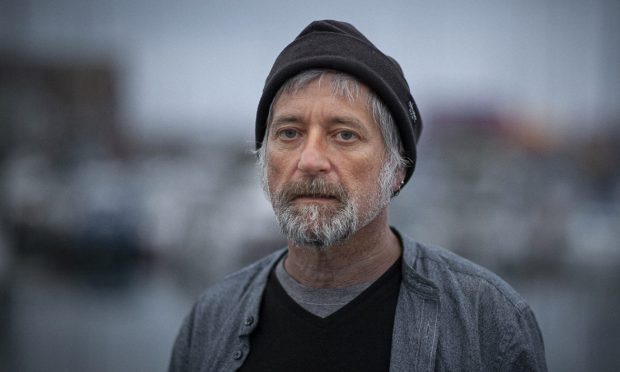
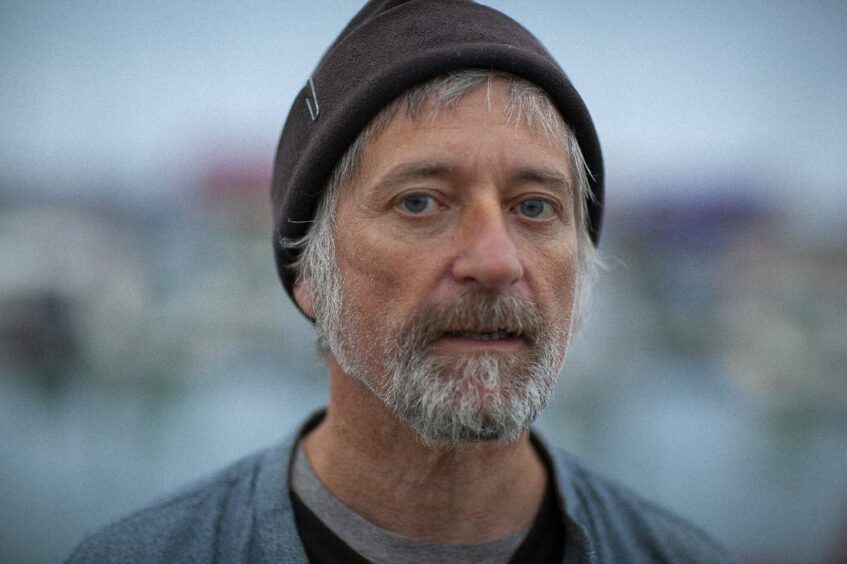
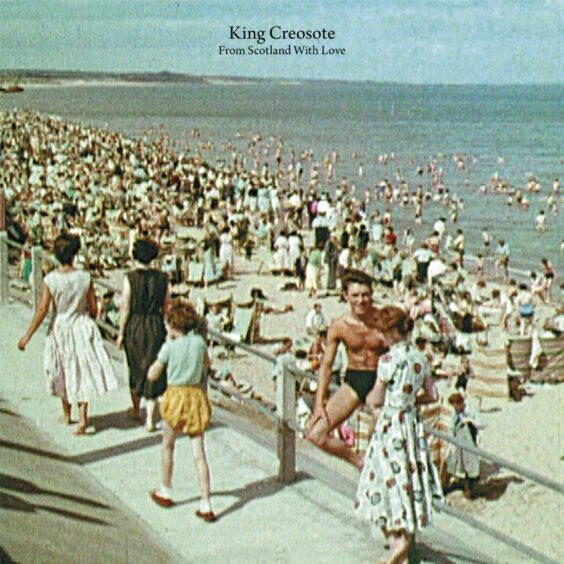
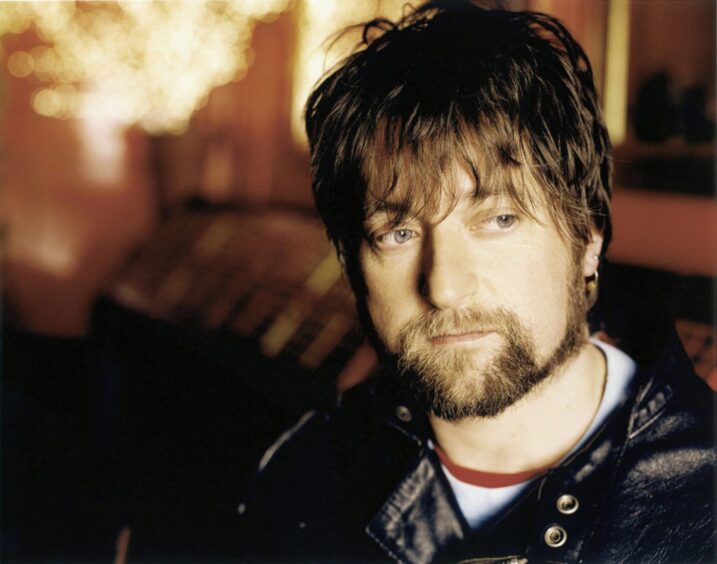


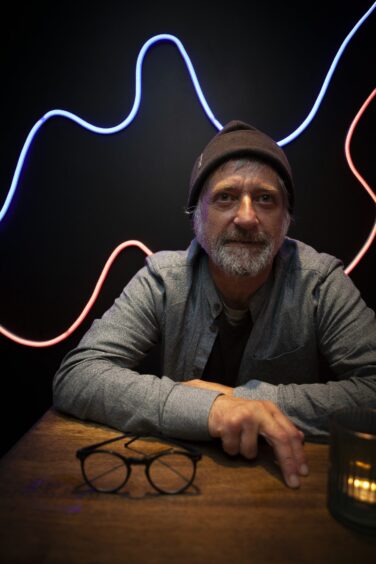

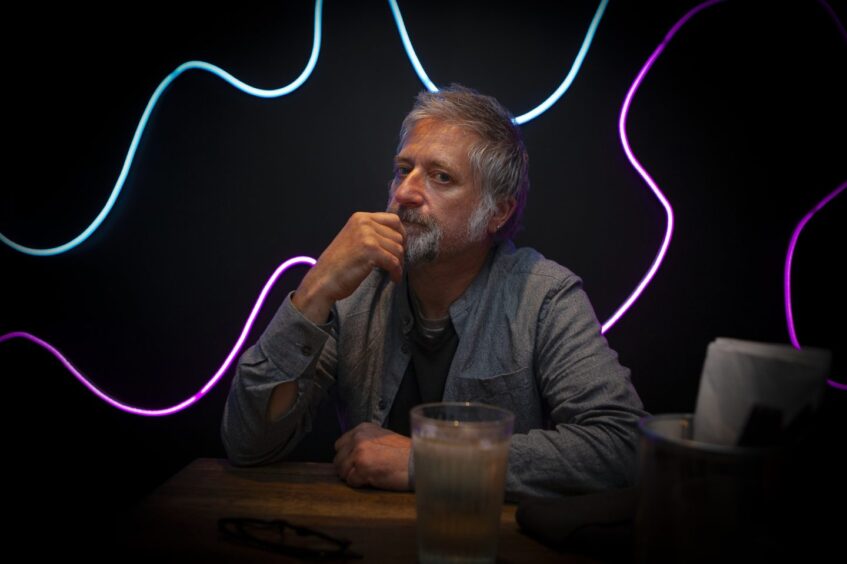


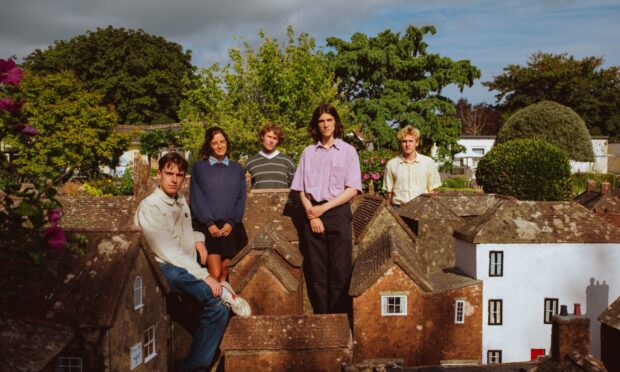


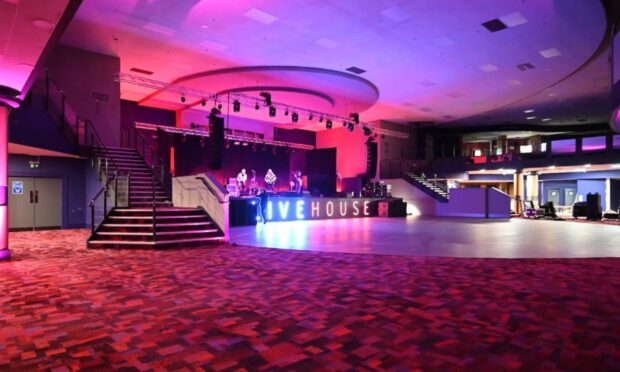

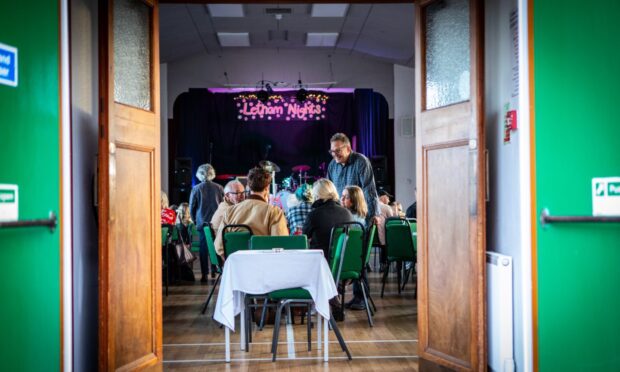

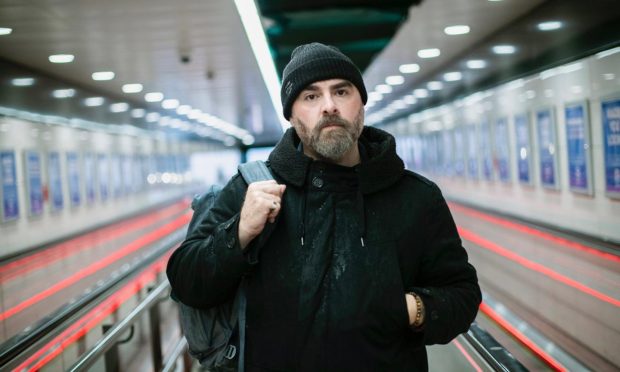
Conversation